Peter Higgins
TRUTH AND FEAR
The salt stars melt in the barrel
The ice-water turns coal-black
Death is getting purer, hard times saltier,
The planet edging closer to truth and to fear
OSIP MANDELSTAM (18911938)

orbitbooks.netorbitshortfiction.com
In the debatable borderland between night and day, the city of Mirgorod softens. A greyness that is not yet dawn settles on rooftops and gathers in wide empty avenues and squares. Yellow lamp-lit windows grow bleak and drab. Things move in the city, but surreptitiously, in the margins, with a muted, echoless quietness of speech. Mud-footed night-shapes pad away down alleys. A boatman winces at the raw gunning of his barge engine. A waiter eases the iron shutters of the Restaurant Hotel Aikhenvald carefully open so they will not clatter.
Low on the citys eastern horizon, a gap opens in the growing milky bruise of morning and a surprising sliver of sun, a solar squint, spills watery light. The River Mir that has flowed black through the night kindles suddenly to a wide and wind-scuffed green. An exhalation of water vapour, too thin to be called a mist, rises off the surface. The breath of the river quickens and stirs, and on its island between the Mir and the Yekaterina Canal, moored against the embankment of the Square of the Piteous Angel, the Lodka condenses out of the subsiding night, blacker and blacker against the green-tinged yellowing sky. Its cliff-dark walls seem to belly outwards like the sides of a momentous swollen vessel. The jumbled geometry of its roofscape is forested with a hundred flagpoles, and from every pole a red flag edged with black hangs at half mast, draped and inert. Banners hang limply from parapets and window ledges: repetitious, identical fabrics of blood and black, the officious, unwavering, requiring stare of collective mourning.
Within the walls of the Lodka, the unending work of the Vlast goes on. Its skeleton crew, the three thousand watchkeepers of the nightcivil servants, diplomats, secret policeare completing their reports and tidying their desks. First light is falling grey through the grimed glass dome onto the still-empty galleries of the Central Registry, where the great wheel of the Gaukh Engine stands motionless but expectant. On hundreds of yards of unlit shelving, the incoming filesthe accusations and denunciations, the surveillance records, the intercepted communicationsawait the archivists of the new day. The stone slabs of the execution yards are being scrubbed and scoured with ammonia, and in the basement mortuary the new arrivals slabbed cadavers seep and chill.
In the Square of the Piteous Angel the morning light loses its first bright softness and grows complacent, ordinary and cold. Along the embankment the whale-oil tapers, burning in pearl globes in the mouths of cast-iron leaping fish, are bleached almost invisible, though their subtle reek still fumes the dampness of the air. The iron fish have heavy heads and bulging eyes and scales thick-edged like fifty-kopek coins. Their lamps are overdue for dousing. The gulls have risen from their night-roosts: they wheel low in silence and turn west for the shore.
And on the edge of the widening clarity of the squares early emptiness, the observer of the coming day stands alone, in the form of a man, tall and narrow-shouldered in a dark woollen suit and grey astrakhan hat. His name is Antoninu Florian. He takes from his pocket a pair of wire-framed spectacles, polishes with the end of his silk burgundy scarf the circular pieces of glass that are not lenses, and puts them on.
It is more than two hundred years since Antoninu Florian first watched a morning open across Mirgorod. Half as old as the city, he sees it for what it is. Its foundations are shallow. Through the soles of his shoes on the cobbles he feels the slow seep and settle of ancient mud, the deep residuum of the city-crusted delta of old Mir: the estuarial mud on which the Lodka is beached.
The rivers breath touches Florians face, intimate and sharing. Cold moisture-nets gather around him: a sifting connectedness; gentle, subtle water-synapses alert with soft intelligence. Crowding presences move across the empty square and tall buildings not yet there cluster against the skyline. The translucence of a half-mile tower that is merely the plinth for the behemoth statue of a man. Antoninu Florian has seen these things before. He knows they are possible. He has returned to the city and found them waiting still.
But today is a different day. Florian tastes it on the breath of the river. It is the day he has come back for. The long equilibrium is shifting: flimsy tissue-layers are peeling away, the might-be making way for the true and the is. And in Florians hot belly there is a feeling of continuous inward empty falling, a slow stumble that never hits the floor: he recognises it as quiet, uneasy fear. The breath of the river brings him the scent of new things coming. It tugs at him. Urges him. Come, it says, come. Follow. The woman who matters is coming today.
Florian hesitates. What he fears is decision. Choices are approaching and he is unsure. He does not know what to do. Not yet.
The curiosity of a mans gaze rakes the side of his face. A gendarme is watching him from the bridge on the other side of the square. Florian feels the involuntary needle-sharpening of teeth inside his mouth, the responsive ache of his jaw to lengthen, the muscles of neck and throat to bunch and bulk. His human form feels suddenly awkward, inadequate, a hobbling constraint. But he forces it back into place and turns, hands in pockets, narrow shoulders hunched against the cold he does not feel, walking away down Founders Prospect.
The gendarme does not follow.
In her office high in the Lodka, on the other side of the Square of the Piteous Angel, Commander Lavrentina Chazia, chief of the Mirgorod Secret Police, put down her pen and closed the file.
We are living in great days, Teslom, she said. Critical times. History is taking shape. The future is being made, here and now, in Mirgorod. Do you feel this? Do you taste it in the air, as I do?
The man across the desk from her said nothing. His head was slumped forward, his chin on his chest. He was breathing in shallow ragged breaths. His wrists were bound to the arms of his chair with leather straps. His legs, broken at the knees, were tied by the ankles. His dark blue suit jacket was unbuttoned, his soft white shirt open at the neck: blood had flowed from his nose, soaking the front of it. He was a small, neat man with rimless circular glasses and a flop of rich brown hair, glossy when he was taken, but matted now with sweat and drying blood. Not a physical man. Unused to enduring pain. Unused to endurance of any kind.
Of course you feel it too, Chazia continued. Youre a learned fellow. You read. You watch. You study. You understand. The Novozhd is dead. Our beloved leader cruelly blown apart by an anarchists bomb. I was there, Teslom. I saw it. It was a terrible shock. We are all stricken with grief.
The man in the chair groaned quietly. He raised his head to look at her. His eyes behind their lenses were wide and glassy.
Ive told you, he said. A hundred times a thousand I know nothing of this. Nothing. I I am a librarian. An archivist. I keep books. I am the curator of Lezarye. Only that. Nothing more.
Of course. Of course. But the fact remains. The Novozhd is dead. So now there is a question.
The man did not reply. He was staring desperately at the heavy black telephone on the desk, as if its sudden bell could ring salvation for him. Let him stare. Commander Chazia stood up and crossed to the window. Mirgorod spread away below her towards the horizon under the grey morning sky. The recent floods were subsiding, barges moving again on the river.

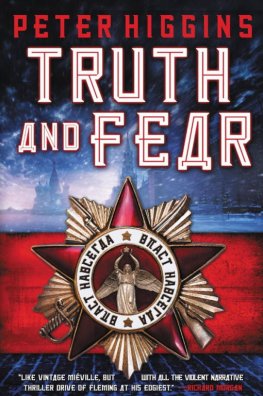

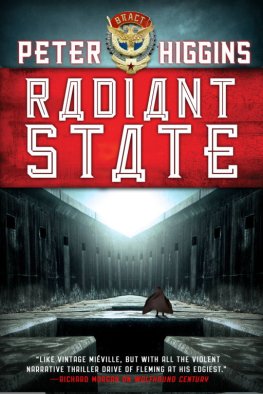
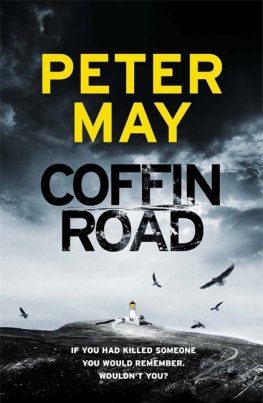





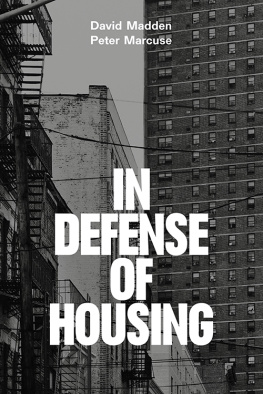
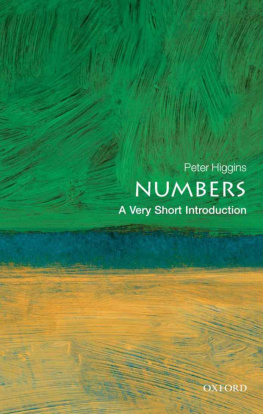
 orbitbooks.netorbitshortfiction.com
orbitbooks.netorbitshortfiction.com